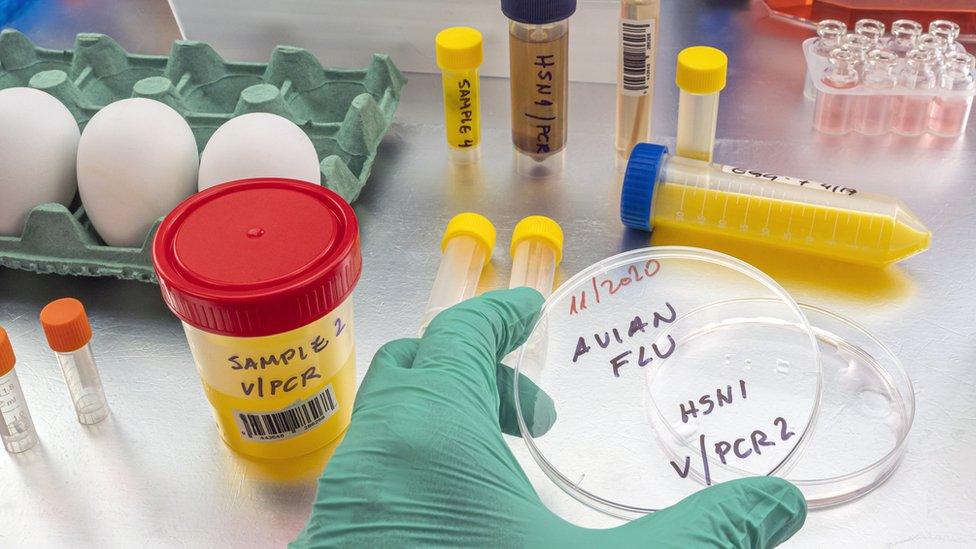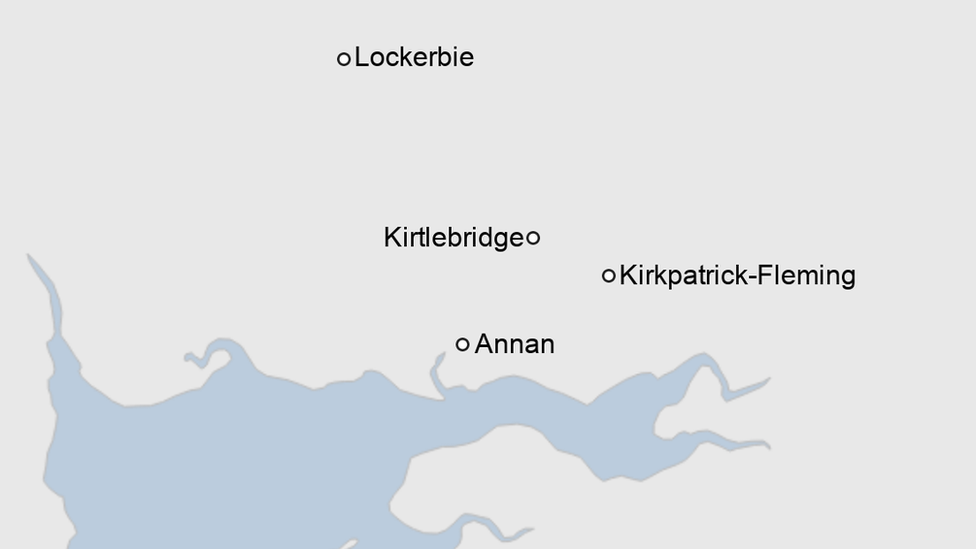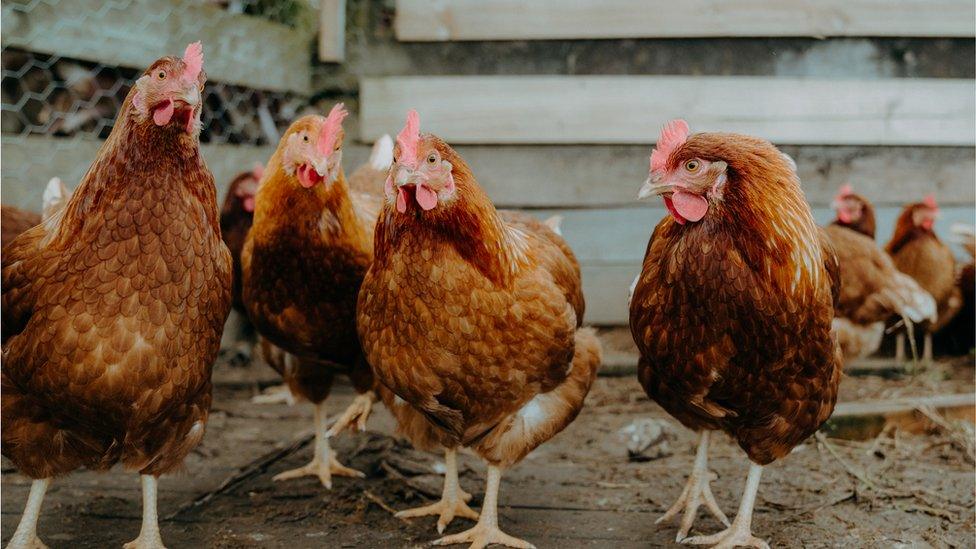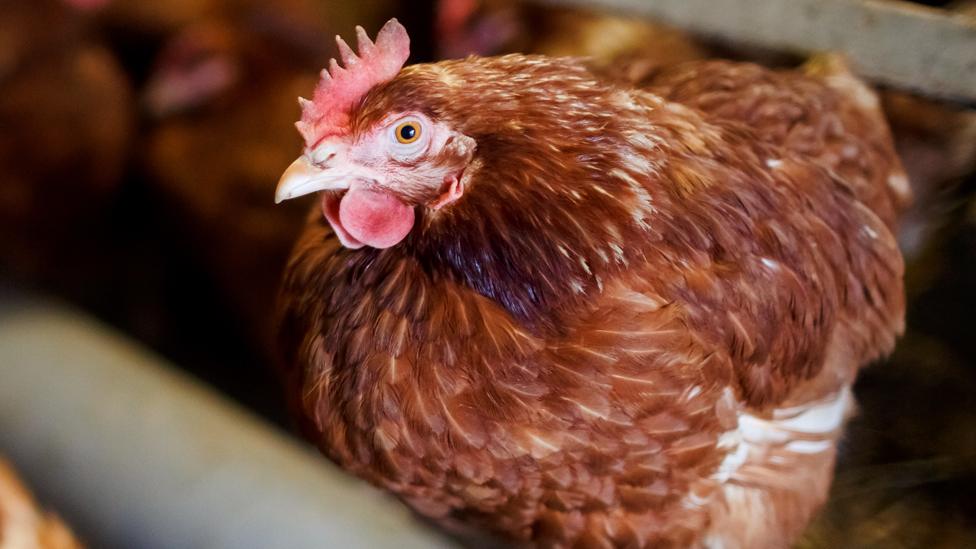Second bird flu outbreak in Dumfries and Galloway
- Published

A second avian flu outbreak has been confirmed at premises in Dumfries and Galloway, the Scottish government has announced.
Temporary control zones have been set up at the site in Kirtlebridge to limit the risk of spreading the disease.
On Monday, a flock of 22,000 hens in nearby Kirkpatrick Fleming was culled after testing positive for avian flu.
Public health advice is that the risk to human health from the avian influenza (H5N1) virus is very low.
A 3km (2 mile) protection zone and 10km (6 mile) surveillance zone has been placed around the site of the latest outbreak which involves about 700 birds.
It means the movement of poultry, carcasses, eggs and used poultry litter within this zone is restricted to prevent any further spread of disease.

The UK's chief veterinary officer has warned there is a "phenomenal level" of avian flu across the country.
Scotland's chief veterinary officer Sheila Voas told BBC Radio Scotland's Drivetime programme she was concerned by the situation.
She said the case at Kirkpatrick Fleming involved a commercial flock while the others were "backyard" operations.
"The numbers this year are unprecedented and we are looking at the worst year on record," she said.
"However, the position in Scotland is not as bad as it could be at present."
'Winter disease'
Action is being taken at two sites in Dumfries and Galloway while Ms Voas said restrictions had already been lifted after a cull of a flock in Angus.
"It comes from wild birds, the virus itself is spread by waterfowl particularly and so migratory geese and ducks head north for the summer in the Arctic where they mix with birds from other places," she said.
"They share viruses around and then when they head south in the winter they bring these flu viruses with them.
"Avian flu is very much a winter disease - the good news is this version doesn't have any human health significance.
"There is never a cast iron guarantee but researchers have done a lot of work and to date there has been no evidence of any spread to humans."
Related topics
- Published4 December 2021

- Published9 December 2021
